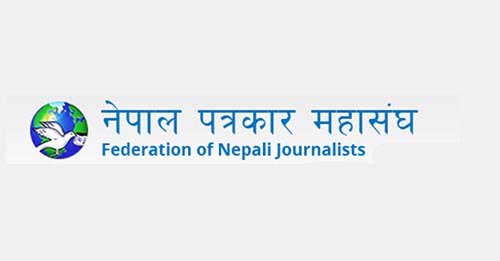Journalists, stakeholders want government to scrap Public Service Broadcasting Bill
KATHMANDU, DECEMBER 9
The Federation of Nepali Journalists and other stakeholders have demanded that the Public Service Broadcasting Bill registered in the National Assembly be scrapped.
Speaking at an interaction organised by the umbrella organisation of Nepali journalists today, FNJ President Govinda Acharya alleged that the Ministry of Communications and Information Technology had formulated the bill without incorporating the suggestions submitted by it earlier.
“The government did not give any space to the views and suggestions of the FNJ in the bill. The government drafted the bill in such a manner as to maintain its ownership over the public media in contravention of international norms and generally accepted principles of public service broadcasting.
The government should either correct the disputed provisions stipulated in the bill or scrap the legislation pronto,” he said. Acharya said the provisions could not be imagined and proposed even by an authoritarian ruler and were against the spirit of public service broadcasting practised in a democracy.
Former FNJ president Suresh Acharya stressed that there was no option to scrapping the bill as it was control-centric and failed to respect the principles of plurality.
FNJ General Secretary Ramesh Bista said the government had drafted the bill with the intention of tightening its grip on media.
Former FNJ vice-president Anita Bind stressed the need of a bill that was accountable to the people.
Ishwari Ojha, vice-president of Nepal Press Union, urged the government to scrap the bill, which he said was against the purpose of public service broadcasting.
Ram Sharan Bohora, deputy administrative chief of Press Council Nepal, said the provisions stated elsewhere in the bill would not make public service broadcasting independent and autonomous, and underscored the need to revise the provisions accordingly.
Lawmaker Ram Narayan Bidari, who is also chairperson of the Delegated Management and Government Assurance Committee at the National Assembly, said the sections and clauses of the bill could be revised in such a way as to make it in line with international practices and principles of public service broadcasting. He also called on the FNJ to pressure the government and lawmakers for necessary revision of the bill.
As per international practices, a government doesn’t operate media business in a democracy. Despite the government’s commitment to free the state-owned Radio Nepal and Nepal Television from its ownership and transfer its title to the people, it is trying to continue to take them under control.
FNJ said the bill would pave the way for the government to exercise more control over Radio Nepal and NTV and make them more loyal to it.
According to FNJ, the government has exposed its undemocratic attitude by registering the bill in the Upper House contrary to its commitment and the provisions stipulated in the existing National Media Policy.
Definition of public service broadcasting and provisions related to formation of firm, objectives, organisational structure, and appointment of officials are not in compliance with the norms of public service broadcasting, it said. The bill states that a minister or state minister shall be the chairperson of Public Service Broadcasting Council and secretaries and persons appointed by the government shall act as its members.
“This provision is guided by the government’s intention to curtail press freedom,” FNJ said.






